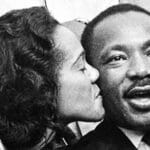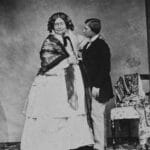The Rise of a Queen Bee: How Louella Parsons Reigned Over Hollywood
Louella Parsons, originally Louella Rose Oettinger, wasn’t just a gossip columnist; she was the architect of Hollywood whispers during its golden age. Imagine a world where one woman’s words could make or break careers, studios trembled at her call, and the public devoured her every word. This was the reality Louella Parsons built, forever changing how we think about entertainment news.
From modest beginnings to a sprawling media empire, Parsons’ journey is a fascinating study in ambition, influence, and the insatiable human appetite for scandal. This article explores the life and legacy of Hollywood’s original gossip queen, examining her rise to power, controversial tactics, and the indelible mark she left on an industry built on smoke and mirrors.
A Finger on the Pulse of Public Desire
Parsons possessed an uncanny ability to tap into the public’s craving for glimpses into the seemingly untouchable world of their favorite stars. She understood that behind the glamour and on-screen personas lay a world of secrets, love affairs, and rivalries – and she served it up to an eager audience. This understanding, mixed with an unrelenting ambition and a knack for storytelling, fueled Parsons’ meteoric rise.
Her column, syndicated in over 700 newspapers, provided her with an unparalleled platform, reaching millions of readers across the country. With every carefully crafted sentence, she shaped public perception, fueling the allure of Hollywood and solidifying the grip studios held over their stars’ carefully curated images.
The Price of Power: Blackmail, Fabrications, and Ethical Quandaries
Parsons’ reign was not without controversy. Whispers of blackmail and the fabrication of stories followed her throughout her career, casting a long shadow on her legacy. Her relentless pursuit of the next big scoop, often at the expense of someone’s privacy, sparked debates about journalistic ethics that continue to this day. Was she a ruthless manipulator or a product of a time when Hollywood operated under a different set of rules?
The Hedda Hopper Showdown: A Rivalry for the Ages
No discussion of Louella Parsons is complete without mentioning her legendary rivalry with fellow gossip maven, Hedda Hopper. Their battle for exclusives and influence became the stuff of Hollywood legend, a no-holds-barred match where both women were unafraid to play dirty or air their grievances publicly. This feud exemplified the cutthroat nature of the Hollywood gossip mill, where information was currency and power was wielded with a carefully chosen word or a strategically leaked secret.
A Complicated Legacy: Trailblazer or Tyrant?
Parsons’ impact on Hollywood and journalism remains a complex and often debated topic. On the one hand, she essentially invented the blueprint for celebrity gossip as we know it, influencing public opinion and solidifying the symbiotic, often manipulative, relationship between studios and the media. On the other hand, her questionable methods and disregard for personal boundaries cast a pall over the very idea of ethical entertainment journalism.
Despite the controversies, Parsons’ influence on making Hollywood feel less distant, less untouchable, is undeniable. Her column provided a peek behind the curtain, revealing a world of glamour, scandal, and human drama that captivated audiences. Her impact on the industry is still felt today, a testament to the enduring power of a good story and our never-ending fascination with the lives of the rich and famous.
What Happened to Louella Parsons?
Louella Parsons’ influence wasn’t merely about reporting on Hollywood; it was about shaping its narrative. As the original gossip queen, her influence was unmatched. Her column served as a forerunner to today’s trending topics, but with an added layer of power—the power to make or break a career with a single sentence. Studios catered to her whims, stars craved her approval, and the public couldn’t get enough of her insider scoops.
This level of power, however, came at a cost. As the years passed, Parsons’ tactics became increasingly entangled with speculation about their veracity. Rumors of blackmail, the fabrication of stories, and the shielding of favored stars from negative press tarnished her reputation. Her rivalry with Hedda Hopper, another formidable force in the world of Hollywood gossip, further amplified these controversies, creating a public spectacle that captivated and appalled in equal measure.
By the 1950s, a new wave of gossip journalists emerged, and Parsons’ once-unshakeable grip on Hollywood began to weaken. A stroke in 1965 marked the end of her reign, forcing her into retirement. She died in 1972, leaving behind a legacy as complicated as the industry she chronicled.
Despite the controversies, Parsons’ role in shaping entertainment journalism is undeniable. She created the playbook for how we consume celebrity news, for better or worse. Whether admired for her pioneering spirit or condemned for her ruthless tactics, Louella Parsons’ impact on Hollywood is an enduring narrative, a story as fascinating as the ones she herself told.
Unveiling Hollywood’s First Lady: Louella Parsons
Beyond the sensational headlines and whispered rumors, the story of Louella Parsons is one of ambition, influence, and the evolution of an industry. She wasn’t merely a gossip columnist; she was a force of nature who shaped the very fabric of Hollywood during its Golden Age. Here’s a more in-depth look at the woman who earned the title of “The First Lady of Hollywood”:
The Making of a Powerhouse: From Humble Beginnings to Hollywood Royalty
Born Louella Rose Oettinger in 1881, Parsons’ journey to Hollywood dominance was far from predictable. In 1914, she penned what is widely regarded as the first dedicated movie gossip column for the Chicago Record Herald, a move that marked the inception of a groundbreaking career. Her innate understanding of the public’s fascination with the lives of stars, coupled with her engaging writing style, quickly garnered attention.
In 1918, William Randolph Hearst, the media mogul, purchased the Chicago Record Herald. While Parsons was initially let go, Hearst, recognizing her talent and growing influence, soon brought her on board his vast media empire. This pivotal moment cemented her future, providing her with an unparalleled platform to reach millions and shape the narrative of Hollywood.
A Pen Mightier Than a Sword: Shaping Hollywood Narratives
At her peak, Parsons’ syndicated column graced over 700 newspapers, reaching an estimated 20 million readers globally. Her words held immense power. She could launch careers, catapult actors to stardom, or, conversely, tarnish reputations and instigate the downfall of those who crossed her. Studios, recognizing her influence, actively courted her favor, feeding her information and relying on her to shape public perception.
Stars, in turn, lived in both awe and fear of Parsons’ pen. Her approval could mean the difference between landing a coveted role or facing career oblivion. This dynamic underscored the carefully constructed and often ruthlessly maintained facade of Hollywood glamour, where image was everything and control was paramount.
A Legacy of Innovation (and Controversy)
While Parsons’ impact on the entertainment industry is undeniable, her legacy remains a subject of debate. She revolutionized how news was consumed, paving the way for today’s celebrity-obsessed culture and the constant scrutiny of public figures. However, her tactics, often involving rumor-mongering, alleged blackmail, and a disregard for privacy, cast a long shadow on her achievements.
Her bitter rivalry with Hedda Hopper, another powerful gossip columnist, further exemplifies the cutthroat nature of this world. Their battles for exclusives and influence created a climate of paranoia within Hollywood, with stars and studios alike caught in the crossfire.
A Life Beyond the Headlines: Exploring Louella Parsons’ Complexity
To understand Louella Parsons solely through the lens of her gossip column is to grasp only a fraction of her story. Her personal life, marked by three marriages, alleged affairs, and a complex relationship with her adopted daughter, Harriet, reveals a woman of contradictions. Examining her life in its entirety provides a more nuanced understanding of the woman behind the headlines.
Was she a ruthless manipulator who exploited Hollywood’s vulnerabilities? Or was she a product of her time, operating within the confines of an industry built on manufactured narratives and carefully guarded secrets? Perhaps the answer lies somewhere in between.
One thing is certain: Louella Parsons’ impact on entertainment journalism and the dynamics between stars, studios, and the public remains palpable today. She left behind a legacy as glamorous and complicated as the industry she helped shape.
What Happened to Hedda Hopper?
The tale of Hedda Hopper is one of ambition, influence, and the eventual decline of power in the fickle world of Hollywood. Sharing a fierce rivalry with Louella Parsons, Hopper, too, reigned as a queen of gossip, shaping careers and influencing the trajectory of the film industry. But as the years passed and Hollywood evolved, Hopper’s star began to fade. What led to the downfall of this once-formidable figure?
The Shifting Sands of Hollywood: A New Era Emerges
Hedda Hopper, born Elda Furry in 1885, rose to prominence from the unlikeliest of places—a struggling acting career. Leveraging her Hollywood connections, she transitioned to journalism, initially even collaborating with her future nemesis, Louella Parsons. However, this partnership quickly dissolved into a bitter rivalry that would define their careers.
Hopper’s column, “Hedda Hopper’s Hollywood,” became a must-read, syndicated in numerous newspapers and reaching millions. She was known for her sharp wit, conservative values, and a take-no-prisoners approach to gossip. Her words, often laced with innuendo and scathing commentary, could make or break a career.
However, the Hollywood landscape began to shift in the 1960s. The rise of a new generation, a changing social climate, and evolving tastes in entertainment contributed to the decline of Hopper’s influence.
Factors Contributing to Hopper’s Decline:
Changing Tastes: Hopper’s brand of gossip, often focused on scandals and moral judgments, began to feel outdated in a more progressive era. The public’s interest shifted towards different forms of entertainment and a less rigid moral compass.
A Less Adaptable Style: Compared to Louella Parsons, who seemed to adapt somewhat to the changing times, Hopper’s style remained largely unchanged. Her often-acerbic tone and focus on traditional values failed to resonate with a new generation.
The Price of Power: Hopper’s sharp tongue and penchant for controversy, while initially contributing to her success, may have ultimately alienated potential allies. Her willingness to expose secrets and engage in public feuds may have made her a liability in an evolving Hollywood.
A Legacy Clouded by Controversy
Hedda Hopper continued writing her column until her death in 1966, but her impact had undoubtedly diminished. While she played a significant role in shaping the landscape of Hollywood gossip and influencing the dynamics between the press and the film industry, her legacy remains complex and often viewed with a more critical lens than that of her rival, Louella Parsons.
Hopper’s story serves as a cautionary tale of the transient nature of power and the importance of adaptability in a constantly evolving world. While her influence may have waned in her later years, her impact on Hollywood and the enduring allure of celebrity gossip remains a fascinating and relevant subject.
















1 thought on “Louella Parsons: The Reign, Ruin, and Reinvention of Hollywood Gossip”
Comments are closed.